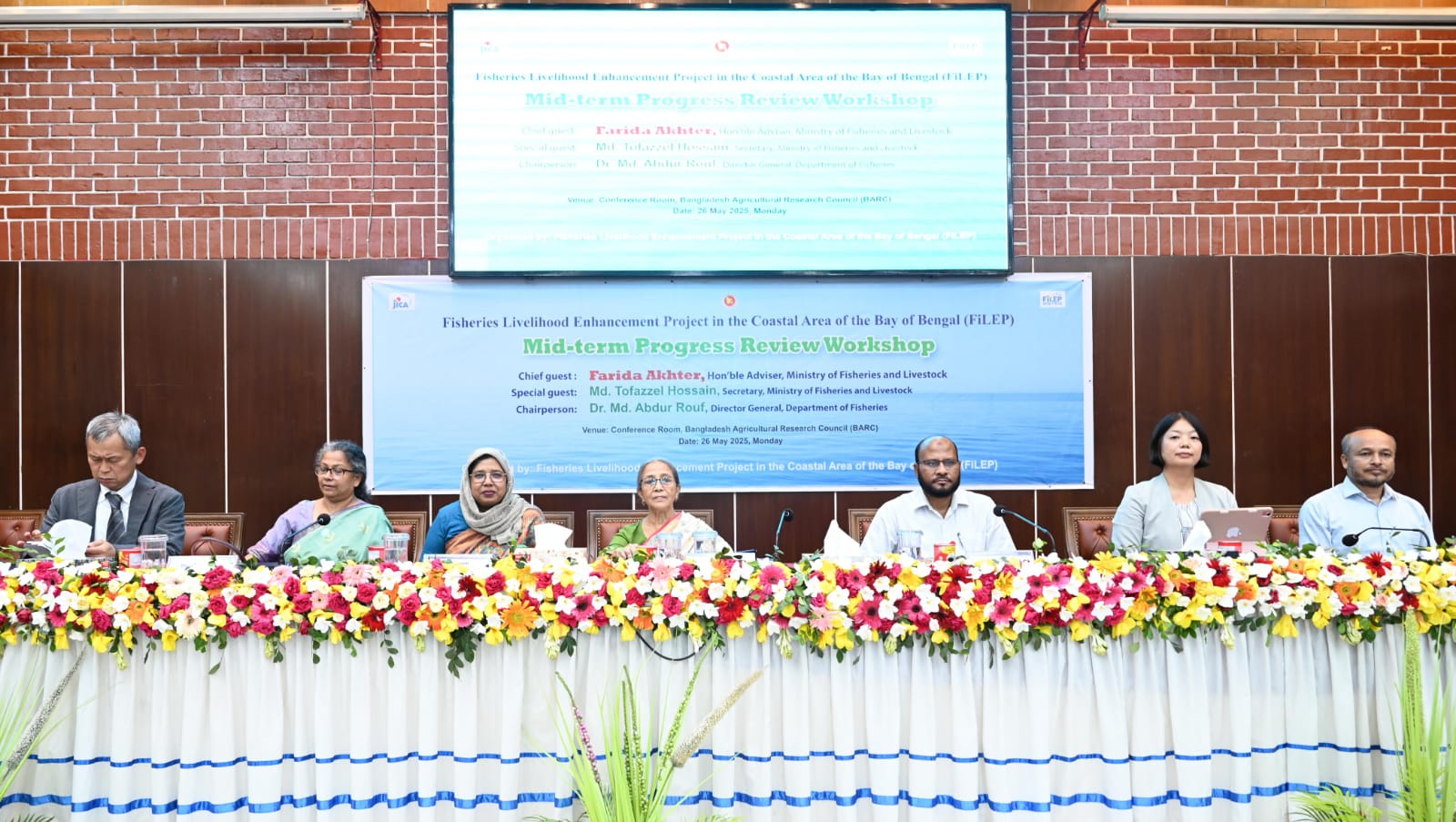

Staff Correspondent
Fisheries and Livestock Adviser Farida Akhter urges the Japan International Cooperation Agency (JICA) to expand the Fisheries Livelihood Enhancement Project in the Coastal Area of the Bay of Bengal (FiLEP) project coverage to all coastal districts.
This expansion would significantly enhance the livelihoods of vulnerable communities affected by climate change and natural disasters. By incorporating more coastal districts, JICA can play a vital role in fostering sustainable development and resilience in these areas, she added.
“Let me assure you that the Government of Bangladesh remains deeply committed to working hand in hand with JICA and other development partners. We are ready to provide all necessary institutional support, policy facilitation, and coordination to ensure the long-term success and expansion of this valuable initiative,” she said while speaking as chief guest at a Mid-term Progress Review Workshop on Fisheries Livelihood Enhancement Project in the Coastal Area of the Bay of Bengal (FiLEP) on Monday at the capital.
Adviser Farida Akhter said, “We already know that the Fisheries Livelihood Enhancement Project (FiLEP) has been working in Cox’s Bazar, Bangladesh, with the small-scale coastal fisheries households for the improvement of their livelihoods since May 2022. This project is working towards enhancing the livelihoods of small-scale coastal fishers — a sector that is not only crucial for our food security but also for the socio-economic well-being of millions living along the coastal belt of Bangladesh.
At the outset, I would like to extend my heartfelt thanks to JICA for their continued support in strengthening Bangladesh's fisheries sector, particularly for this initiative, which addresses the grassroots communities that depend heavily on coastal and marine resources for their survival, she added.
She also said that over the past months, “I have closely followed the progress of this project, and I must say, the outcomes so far are commendable.”
The targeted interventions — whether it is capacity development, improved access to markets, the introduction of climate-resilient fishing practices, or the support for alternative livelihoods — have already started to make a tangible difference in the lives of small-scale fishers, she said.
Farida Akhter said, We must also recognize that the challenges facing our coastal fishers are vast — from climate change and natural disasters to overfishing, habitat degradation, and lack of proper infrastructure and institutional support. These challenges are not confined to a single district or pilot zone; they are present throughout the entire coastline of Bangladesh.
The FiLEP initiative implements a range of health, nutrition, and gender-focused activities aimed at improving the well-being of communities, particularly among women and children.
Maternal Child Health and Nutrition (MCHN) groups form at the village level to engage pregnant and lactating women, children, and adolescents. These groups participate in monthly courtyard sessions where they receive essential information on maternal and child health, hygiene, and nutrition, including topics such as child malnutrition and infant feeding practices.
At the daylong workshop, presided over by Director General of the Department of Fisheries Dr. Md. Abdur Rouf. Also present were Project Director Md. Asaduzzaman and Senior Representative of the JICA Bangladesh Office Miura Mari.
